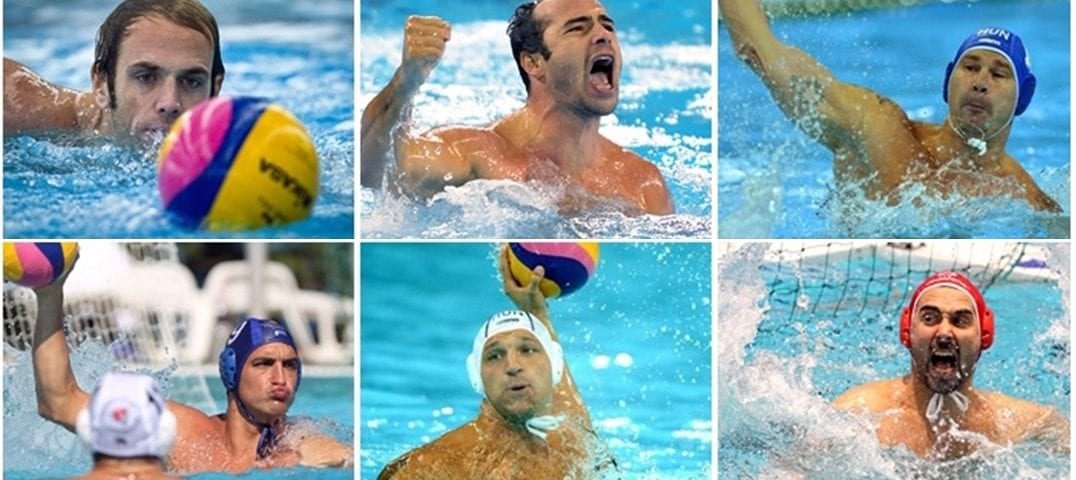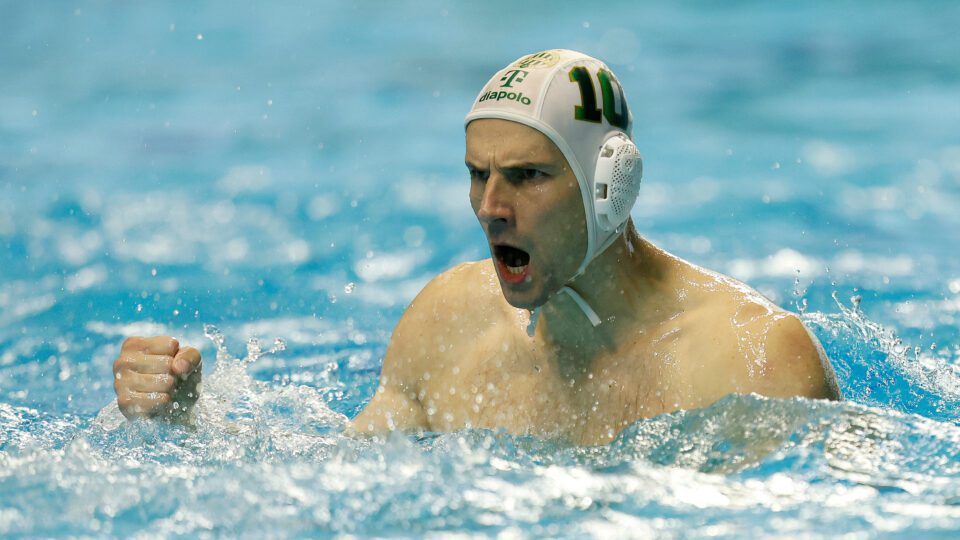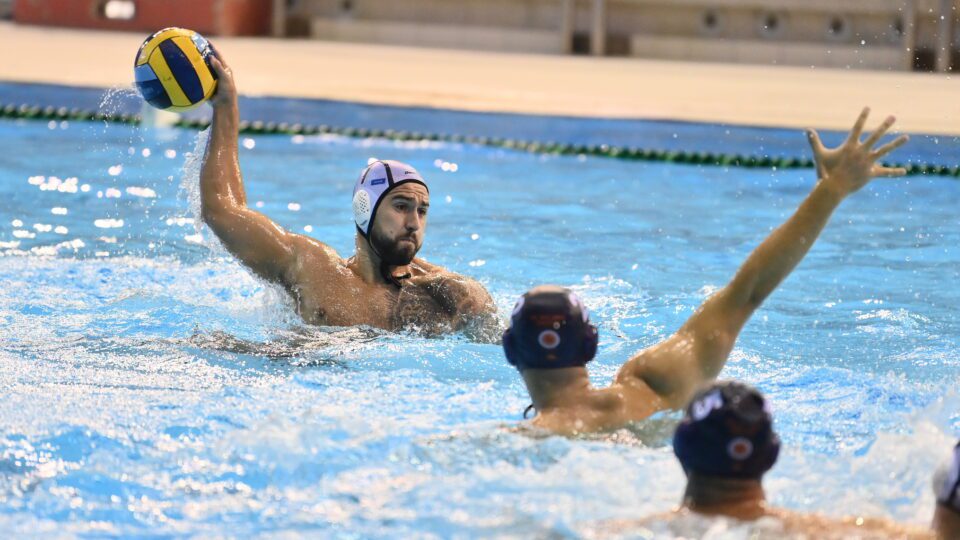Hungary is the most successful country in the history of male water polo. The Hungarians have won 85 medals at the major competitions (Olympic Games, FINA and LEN competitions, Universiade).
Many generations of excellent players wrote golden pages of the history of the Hungarian water polo.
One of the most successful generations was the one which won three Olympic gold medals in a row (2000, 2004, 2008). Hungary wasn’t the first team that managed to clinch three consecutive gold medals. Great Britain did it in a span of 12 years (1908, 1912, 1920). We don’t underestimate the Brits’ successes, but the Hungarians’ achievement is much more significant since water polo game developed a lot during the 20th century.
This is the story of the Hungarians’ Olympic domination in the 2000s.
Hungary debuted at the Olympic Games in Stockholm 1912, while it won the first medal (silver) in Amsterdam 1928. The Hungarians won a medal at each of the editions of the Olympic Games from 1928 to 1980 (6 gold medals, 3 silvers, and 3 bronzes). But after the bronze in Moscow 1980, they waited for a new Olympic medal for a long. Hungary boycotted the 1984 Olympic Games in Los Angeles. Four years later, the Hungarians were 5th in Seoul. They finished in the 6th place in Barcelona 1992. In Atlanta 1996, Hungary lost to Italy in the bronze medal match – 18:20 (two extra time periods)
Start of Kemeny’s era
Next year, Denes Kemeny was appointed as a head coach of the national team, and a new golden era began. Kemeny played water polo from 1966 to 1991 in BVSC, Spartacus, Tatabanya, Ferencvaros, and Italian club Como. He won European junior gold in Duisburg in 1973. After retirement as a player, Kemeny started to work as a coach. He guided Como from 1991 to 1996. Besides playing and coaching water polo, he worked as a veterinarian.
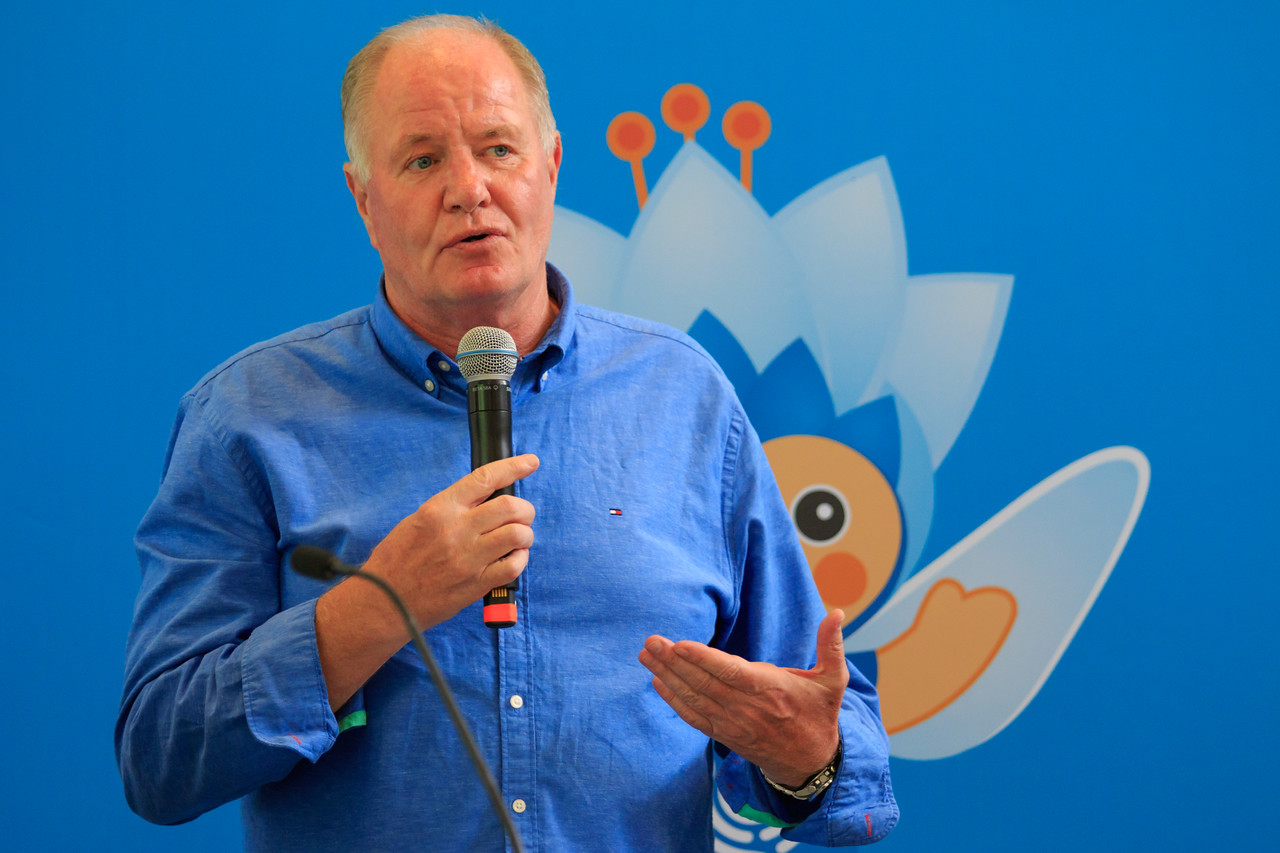
Denes Kemeny in 2017 Photo: David Madar/waterpolo.hu
Hungary’s first big successes, under Kemeny’s guidance, were European title and bronze medal at the FINA World Cup in 1997. Next year, Hungary was the runner-up at the World Championships. In 1999, Hungary retained the European title and clinched the gold at the FINA Cup.
Sydney 2000
Most of the members of the Hungarian teams made their Olympic debuts in Sydney 2000. Only Tibor Benedek, Rajmund Fodor, Tamas Kasas, Zoltan Kosz, and Zsolt Varga played at the Olympics earlier.
The Hungarians had a slow start. They beat Greece (7:4), the Netherlands (16:8), and the USA (10:9) in the group stage. But they lost to Croatia (7:8) and Yugoslavia (9:10) and took 3rd place in the group.
In the quarterfinals, Hungary beat Italy 8:5. The Hungarians faced Yugoslavia in the semifinals, and they took revenge for the defeat in the group stage. Hungary recorded an 8:7 win and secured the gold medal match against Russia.
Kemeny’s team dominated the final. Hungary led 8:2 at halftime and controlled the game in the second half for a consecutive 13:6 win. That score is still the largest winning margin in the final games at the Olympic Games in the modern history of water polo (after the First World War). Tibor Benedek was the best scorer in the gold medal match (4 goals).
In the match for the bronze medal, Yugoslavia defeated Spain 8:3
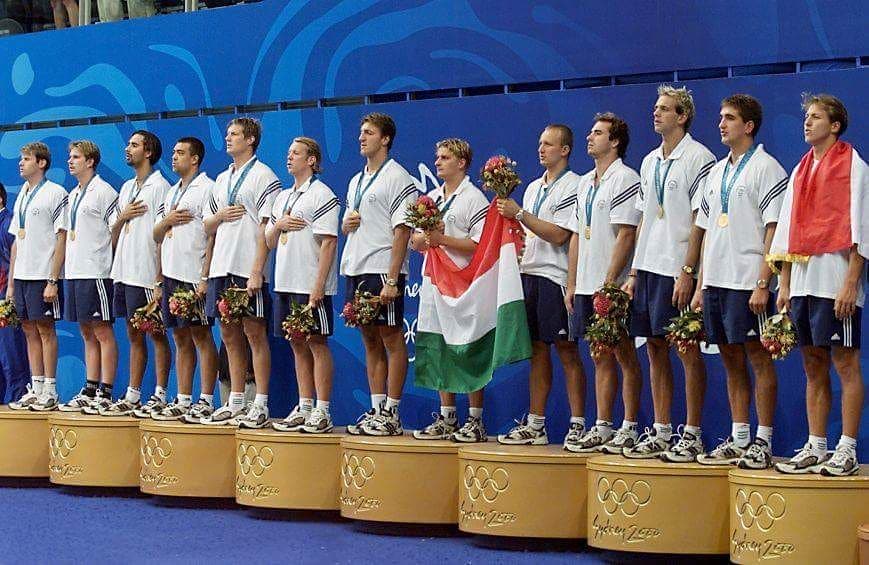
Sydney 2000 Photo: waterpolo.hu/Facebook
The winning squad: Zoltan Kosz, Zoltan Szecsi (goalkeepers), Tibor Benedek, Peter Biros , Rajmund Fodor Rajmund, Tamas Kásás, Gergely Kiss , Tamas Marcz, Tamas Molnár, Barnabas Steinmetz, Bulcsu Szekely, Zsolt I. Varga, Attila Vari.
Between the Games in Sydney and Athens, the Olympic champions won the gold medal at the 2003 World Championships in Barcelona (Hungary’s first gold at the Worlds after 30 years!), silver at the 2002 World Cup, and two bronze medals at the European Championships (2001 and 2003).
In the first-ever edition of the World League in 2002, Hungary took the bronze, while they clinched the gold medals in 2003 and 2004. The second World League gold was an excellent overture for the 2004 Olympic Games.
Athens 2004
It was hard to predict the winner of the water polo tournament at the 2004 Olympic Games There were a lot of medal contenders. Hungary, the reigning Olympic and world champion at that moment was just one of many favorites.
Russia was seeking revenge for the defeat in the 2000 Olympic final. Serbian and Montenegrin water polo players were still in the same team. Croatia, Italy, Spain, host Greece also had high ambitions. The USA, Germany, Australia were ready to surprise. Twelve teams, as usual, took part. They were split into two groups, but only the top three from each of the groups advanced to the knockout stage (the group winners advanced to the semifinals, while 2nd-placed and 3rd-placed faced in the quarterfinals).
Hungary played in group A. The Hungarians defeated European champion Serbia and Montenegro (6:4) on Day 1. After that, they beat Croatia (10:8), USA (7:5), Kazakhstan (14:4) and Russia (7:6) to secure the 1st place and qualify for the semifinals.
In the semifinals, Hungary clashed Russia again, and ruined the Russians’ hopes of the gold medal, with a 7:5 victory.
The final was a replay of the match played at the start of the tournament. Hungary and Serbia and Montenegro battled for the gold. Serbia and Montenegro controlled the game for most of the time. The sides were tied (5:5) after the second quarter, but the Serbs kept Hungary goalless in the third period, while they netted two goals and entered the final period with a 7:5 advantage. But, Hungary produced a brilliant comeback. They scored three unanswered goals in the fourth period for an 8:7 victory and retained the gold with a perfect 7-0 record. The man of the final match was Gergely Kiss, who netted four goals.
The third place was won by Russia, which beat Greece 6:5.
The winning team: Zsoltan Szecsi, Istvan Gergely (goalkeepers), Tibor Benedek, Peter Biros, Rajmund Fodor, Tamas Kasas, Gergely Kiss, Norbert Madaras , Tamas Molnar , Adam Steinmetz, Barnabas Steinmetz , Tamas Varga, Atila Vari.
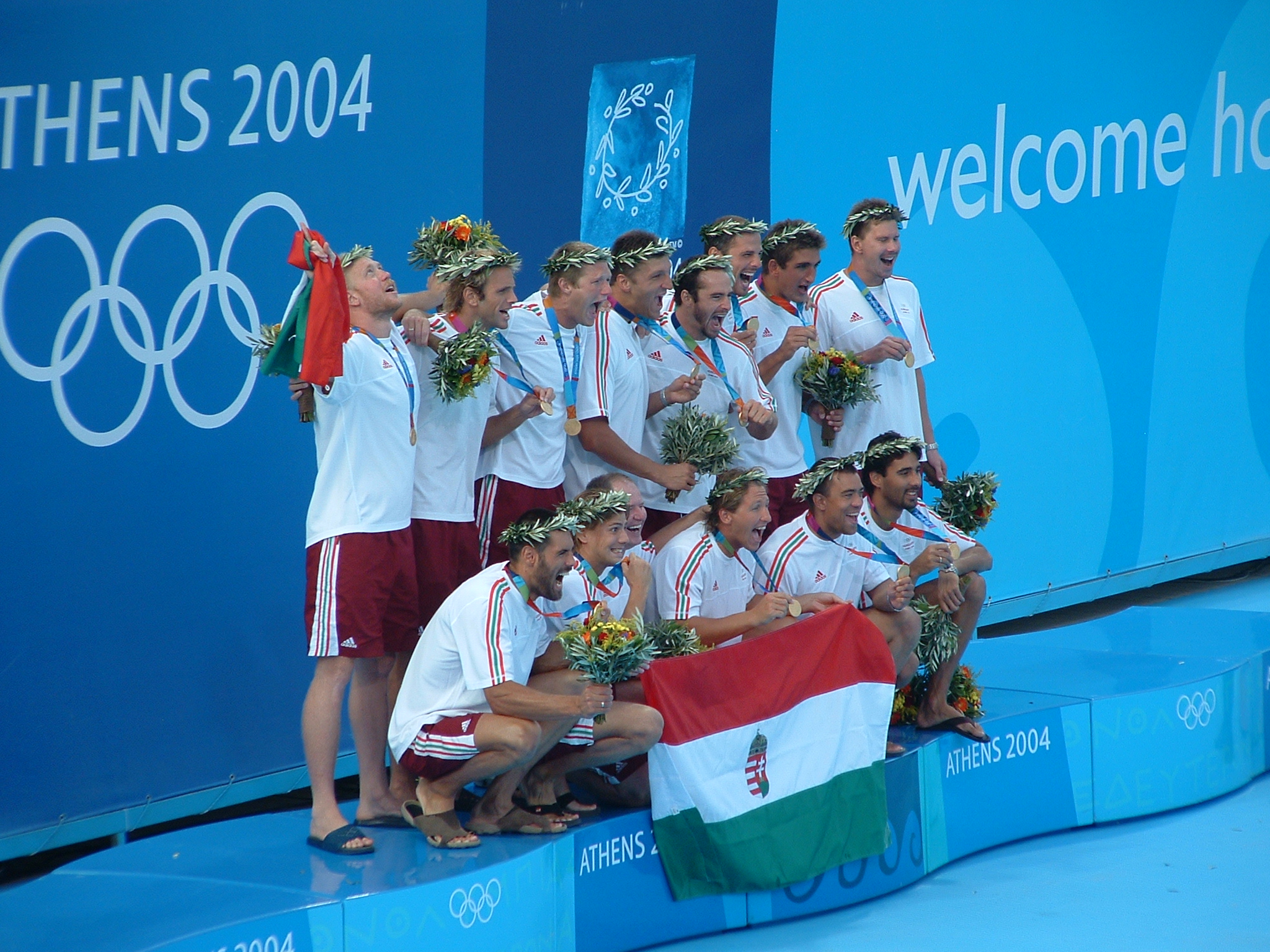
Athens 2004, Photo: foto.alina.hu
In the period after the Games in Athens and before Beijing, the Hungarians won a medal at each of the competitions they took part in, but they lost six finals. Hungary collected silver medals at the World Championships in 2005 and 2007, at the European Championships in 2006, in the World League 2005 and 2007, and the 2006 World Cup. They finished 3rd at the 2008 European Championships.
They didn’t participate in the 2006 World League, while they missed all editions of this competition from 2008 – 2012 because their main goal was a medal at the Olympic Games.
Beijing 2008
The competition formula in Beijing was the same as in Athens in 2004. The group winner secured semifinals, and the 2nd-placed and 3-rd placed teams met in the playoffs. The world water polo map changed a little bit comparing to Athens. Russia wasn’t so strong (it didn’t qualify for the 2008 Olympics) as it had been before. On the other side, after Serbia and Montenegro ceased to exist as a country, and the number of medal contenders increased because the Serbs and the Montenegrins started to play in two separate teams. Both were chasing a medal in Beijing.
Hungary opened the tournament with a 10:10 draw with Montenegro and recorded four wins in the remaining four matches of the group stage – Hungary 17:6, Spain 8:5, Australia 13:12, and Canada 12:3. The Hungarians finished atop of the group and advanced to the semifinals, where they played against Montenegro and recorded an 11:9 victory.
In the second semifinal, the USA, the surprise team of the tournament, shocked Serbia with a 10:5 win. The Americans fought hard in the final, but Hungary controlled the match and clinched the third consecutive gold medal with a 14:10 win. Daniel Varga and Peter Biros scored three goals each. Denes Varga netted two goals.
Serbia defeated Montenegro 6:4 in the bronze-medal match.
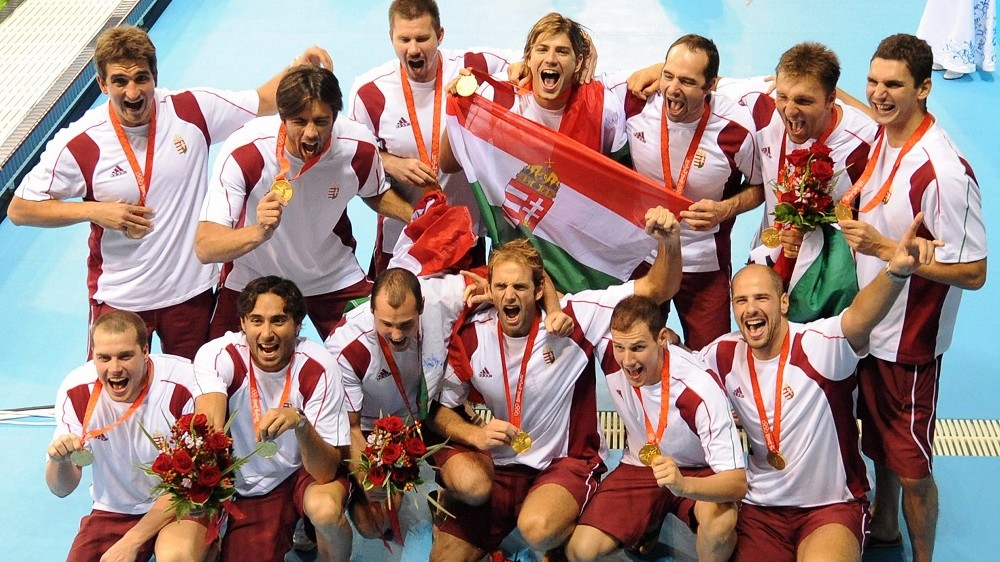
Beijing 2008 Photo: waterpolo.hu
The winning team: Zsoltan Szecsi, Istvan Gergely (goalkeepers), Tibor Benedek, Peter Biros , Istvan Gergely, Norbert Hosnyánszky, Tamas Kasas, Gabor Kis, Gergely Kiss, Norbert Madaras , Tamas Molnar, Daniel Varga, Denes Varga, Tamas Varga.
Six players with three gold medals
Six players won all three gold Olympic medals in a magnificent Hungary’s row: Tibor Benedek, Peter Biros, Tamas Kasas, Gergely Kiss, Tamas Molnar, and goalkeeper Zoltan Szecsi.
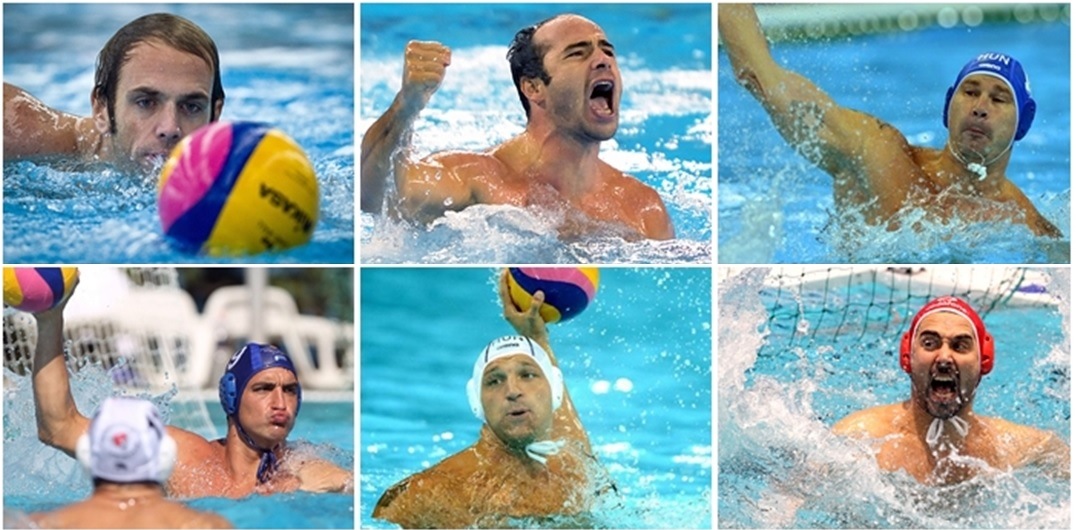
Kasas, Benedek, Biros (top row, from left), Molnar, Kiss, Szecsi (2nd row, from left) Photo: waterpolo.hu
After the Bejing Games and his fifth appearance at the Olympic Games, Tibor Benedek retired from the national team, as well as Tamas Molnar. The other four players tried to win the 4th gold in a row – in London 2012.
The end of the golden era
The years after the Beijing Olympics weren’t very successful for the Hungarians. They returned from the World Championships empty-handed two times (5th place in 2009 and 4th place in 2011). At the 2010 European Championships, they were 4th, while they missed the 2010 World Cup, as well as all the seasons of the World League. Between Beijing and London, they won just one medal – the bronze at the 2012 European Championships. But, they believed that they could continue the Olympic golden streak.
Hungary had a bad start at the 2012 Olympics. In the first round, it was defeated by Serbia 10:14. The Serbs halted the Hungarian’s unbeaten run, which lasted for eight years. Hungary suffered a loss to Yugoslavia (9:10) in the last round of the group stage in Sydney. After that, they were unbeaten in 17 consecutive matches (16 wins and a draw). Montenegro beat Hungary 11:10 in on Day 2 of the tournament in London. By the end of the group stage, the Hungarians recorded three wins in a row (Romania 17:15, Great Britain 17:6 and USA 11:6) and qualified to the quarterfinals from the 3rd place in the group.
Italy, which came to London as the World Champions from Shanghai 2011, beat the Hungarians 11:9 in the quarterfinals and that was the end of the golden era. Italy won the silver medal in London, while Hungary finished 5th.
Croatia became the new Olympic champion, by beating Italy 8:6 in the final. Serbia defeated Montenegro (12:11) in the match for the 3rd place, as well as in Beijing.
Kemeny’s retirement
After London, Denes Kemeny retired and became the president of the Hungarian Water Polo Federation. Kemeny was replaced by Tibor Benedek, one of the best players of the golden generation.
In 2013, Hungary returned to the World League, after five years of absence, and won silver, behind Serbia. At the World Championships in Barcelona, the team led by Benedek clinched the gold medal. This was Hungary’s first gold at the WCH after ten years and the 2003 Championships, which was also held in Barcelona.
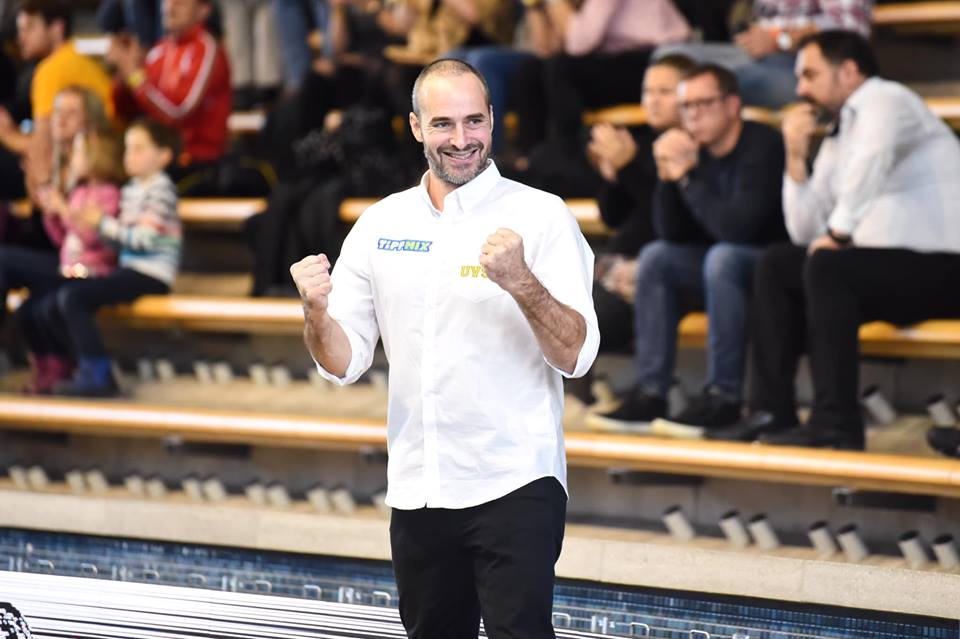
Tibor Benedek Photo: UVSE Vizilabda
Benedek led Hungary to four silver medals (2014 European Championships, 2013 and 2014 World League and 2014 World Cup) and one bronze (2016 European Championships). But the 5th place at the 2016 Olympic Games was a failure for the team which aimed the gold medal and Benedek left the national team.
His successor is Tamas Marcz, who won the Olympic gold in Athens 2004. Hungary had a few ups and downs under Marcz’s guidance. After the silver medal at the 2017 World Championships and 2nd place in the 2018 World League (both competitions were staged in Budapest), the Hungarians were 8th at the 2018 European Championships. But, a few months later, they took the winning trophy in the World Cup, which was the first gold for Hungary after the World Championships in Barcelona 2013.
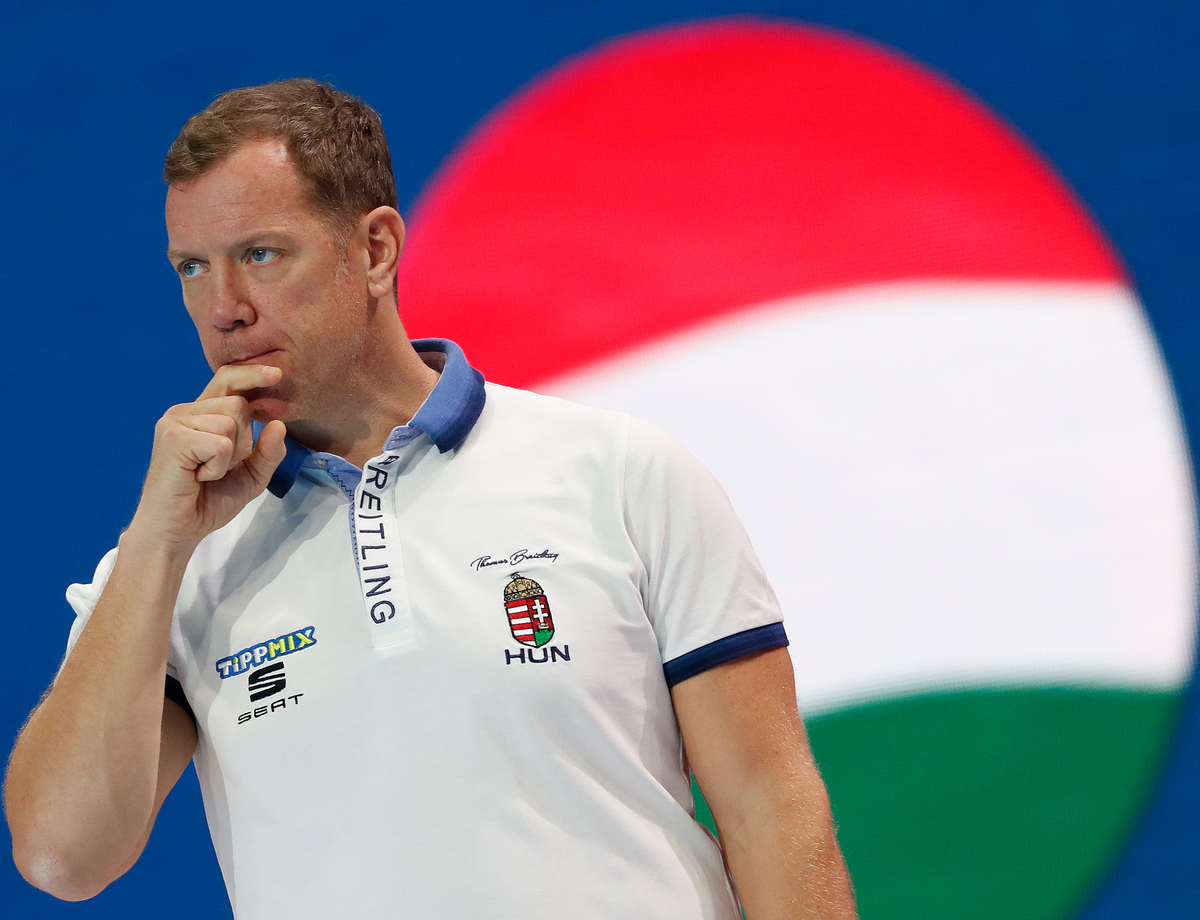
Tamas Marcz Photo: Laszlo Balogh/Total Waterpolo
European title after 21 years
Hungary opened 2020 with the gold at the European Championships in Budapest. This medal is a milestone in the history of the Hungarian water polo. Hungary returned to the European throne after 21 years and the continental championships in Florence 1999. Besides, Hungary finally managed to win the gold medal on home soil, for the first time in the 21st century. This year’s gold came after three losses in big finals played in Budapest in recent years (2014 European Championships, 2017 World Championships, and 2018 World League), and the bronze medal won at the 2001 World Championships.
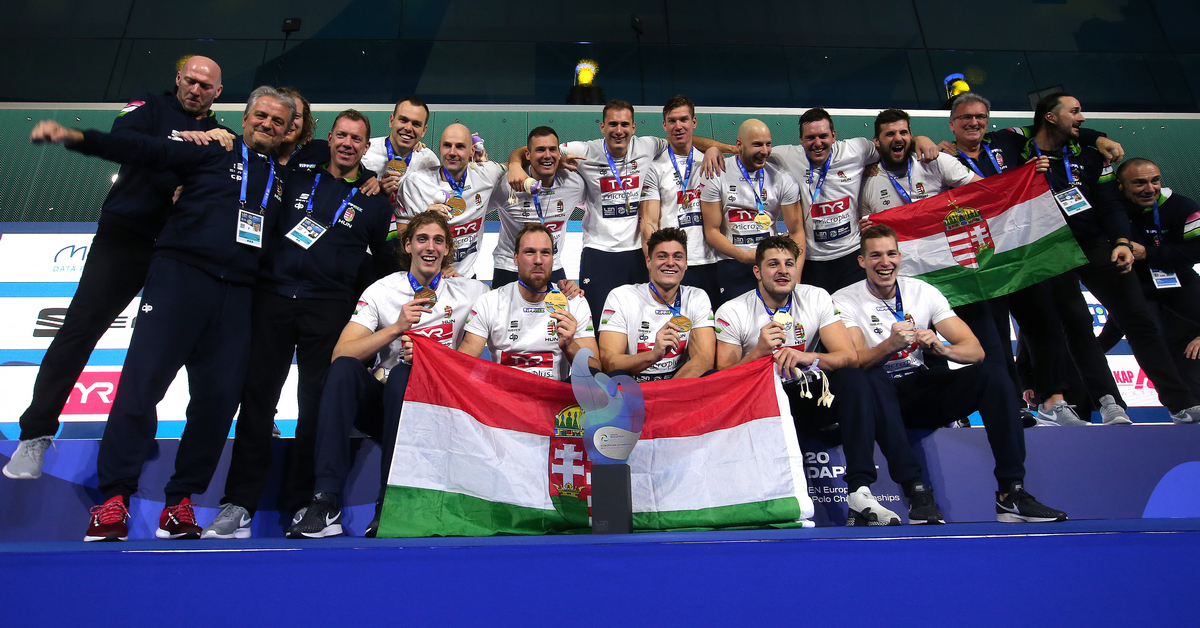
Photo: Laszlo Balogh/Total Waterpolo
Next year we will see if this generation, led by Marcz from the bench, and the 2019 Total Player Denes Varga in the pool can bring back Hungary to the Olympic throne.



